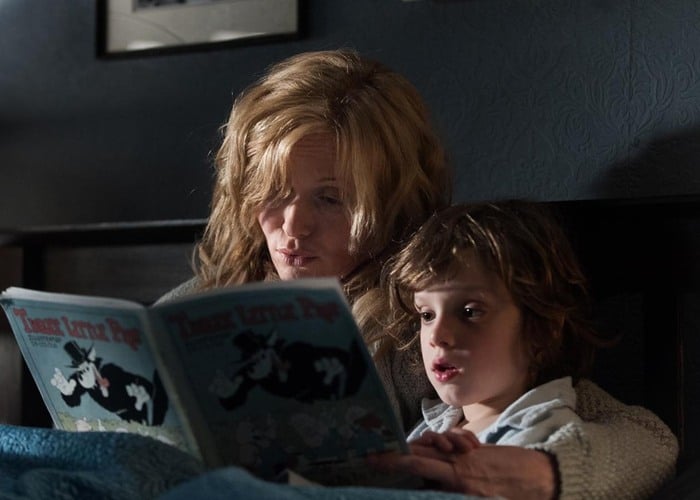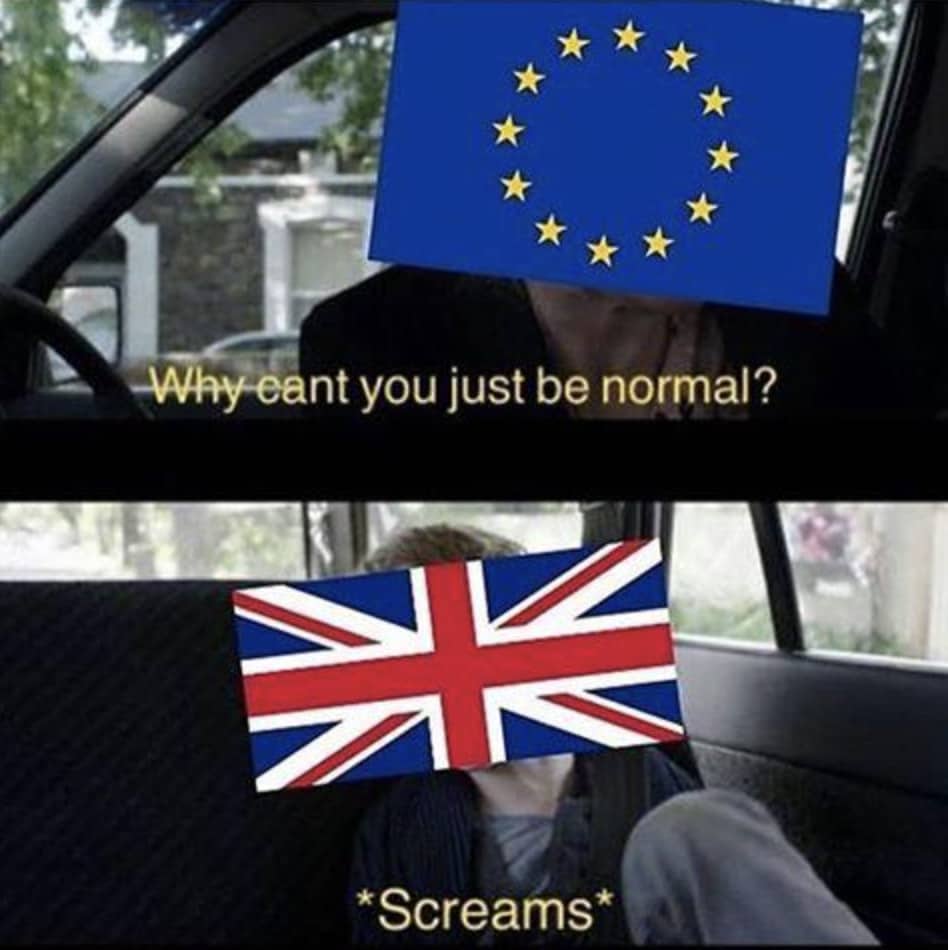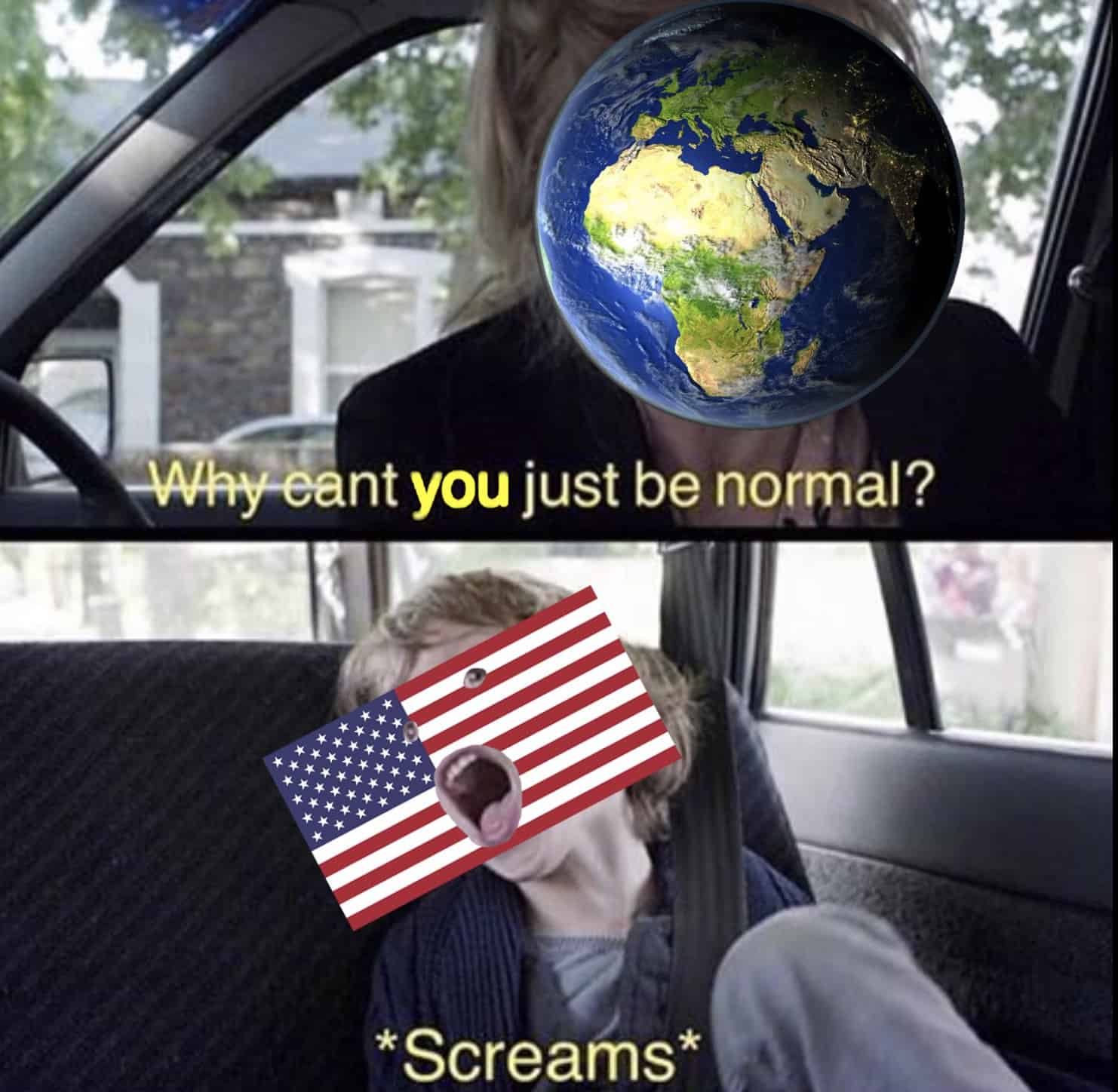
This article is part of Movie Memes Week.
Jennifer Kent’s The Babadook is a grueling meditation on single-motherhood (which earned a spot on our list of the 10 best films ever to premiere at Sundance), following a woman named Amelia (Essie Davis) as she grieves the violent death of her husband while attempting to properly raise their troubled son, Sam (Noah Wiseman).
Family affairs go from miserable to dire when Sam discovers a children’s book titled “Mister Babadook” that contains child-friendly one-liners like “Once you see what’s underneath, you’re going to wish you were dead,” accompanied by similarly frightening images that spring to life on its pages.
Kent’s unnerving, demonic metaphor for grief and trauma first found its footing in meme culture by accident, proving that the internet truly takes no prisoners. In 2016, a screenshot of Netflix’s browsing page went viral: in what was likely a technical error, the sharp-toothed, dead-eyed “Babadook” had found itself placed in the streaming service’s LGBT category.
This, in turn, inspired a zealous surge of so-called “Babadiscourse” on Tumblr and Twitter concerning the Babadook’s role as a “gay icon.” All in good faith and fun, this random mislabeling gave the horror film additional meaning in film convo and was even embraced by The Babadook‘s distributor, IFC Films, who released a limited edition gay pride Blu-ray of the movie
But the fun didn’t stop there. Once The Babadook had received the internet’s seal of approval, a screenshot from the film itself began to circulate. In this image, a frustrated Amelia pulls over the car and shouts at Sam, “Why can’t you just be normal?” To which Sam responds with that adorable screech children love to produce when you’re trapped in a car with them. Realizing The Babadook’s hidden meme potential, citizens of the internet dutifully leaped to action, using the template of the screenshot to make… you guessed it… a political statement.
One image circulated widely on Twitter replaces Amelia’s face with the flag of the European Union and Sam’s with the British flag. This meme was created, of course, shortly after Britain’s decision to leave the Union in 2016. The image quickly became viral, its multitude of shares signaling internet users’ frustration about Great Britain’s not-so-great move.
A few months later, when the US elected Donald Trump, internet users revisited the meme, this time placing the entire earth over Amelia’s face and the American flag over Sam’s. The visual of the earth asking the US, a squirming child in the back seat of its mom’s car, why it can’t “just be normal” is both absurd and somewhat apt. It expresses what sprawling op-eds and media pundits simply cannot.


This meme format operates on a range of levels. First, it works well as an example of how meme culture allows us to sculpt social issues conveniently into analogies, making them easier to digest. For example, processing a political earthquake like the US election of 2016 is difficult, to say the least, but understanding it in the context of a social dynamic, (in this case, one between a frustrated mother and stubborn child), is more relatable. In that sense, film and TV inadvertently lend themselves to their viewers in meme-format as channels through which a range of issues can be explored.
In addition, this meme is just… funny. This is somewhat impressive considering how gut-wrenchingly unfunny The Babadook is, but meme curators aren’t often accused of taking the easy way out. Sam’s screeching response plays out as a brief moment of nervous comedic catharsis in what is otherwise a thematically heavy and terrifying film. This breath is welcomed, and it translates well to what is a similarly complicated and nerve-wracking moment in modern politics. Commenting on political issues by way of a humorous moment in a movie, then, offers us a moment of relief in these thematically heavy and terrifying times.
With meme-culture becoming like a second language to many, it makes sense to stop and wonder when, if ever, our society will reach a point when we no longer need these memes to process our feelings about global affairs. Perhaps that day will come when our politicians figure out how to just be normal.
Related Topics: Movie Memes Week, The Babadook

